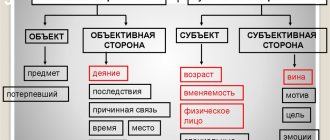There are times in life when a person was sent to prison, and this happened for one reason or another. People are sent to prison for a reason, but for a reason, that is, for some kind of crime. But sometimes it happens when completely innocent people end up there, who, for example, were framed. Such prisoners occur 3 per million; most often real criminals are behind bars. Human life is not insured; sometimes it can present a bad gift from fate, which is a fickle thing. Today you are an ordinary person, but tomorrow you can become a prisoner.
There is a good saying: never say no to money or prison. Therefore, never say that you will not go to prison. Let's first understand what a zone or prison is. And then we’ll talk about prisoners.
Origin of the word "prisoner"
The word “prisoner” came into the Russian language in 1704 from German. Initially it had several meanings. One of them, which has survived to this day, is a person held in custody by a court or police decision. The second meaning of the word is outdated and not used today - small dried fish.
The first written mention of the word was discovered by historians in a decree of Peter the Great of 1718, where it was applied to Swedish prisoners of war. For a long time, the word “prisoner” was used in Russia only by the military department. In its modern meaning, it was first used in the decree of Peter the Great, issued by him in 1816.
This document defined arrest and ordered that in the future all slaves be called prisoners. Before this decree, people in custody were called “cold prisoners.” The last time this word was used was in a royal decree of 1817. Along with the word “convict”, the following expressions were used in everyday life: “prison inmates” and “prison guards.” In the code of Tsar Alexei Mikhailovich, prisoners are called “unhappy.”
Who are the prisoners now?
Arresters are the same prisoners, and therefore persons who were arrested as part of the suppression. Also, a prisoner can be considered a person who has been deprived of his liberty by a court verdict and is serving his sentence in a specialized place, which is considered a colony, pre-trial detention center, prison, etc.
Current legislation relates this concept only to those who have been taken into custody, that is, suspects and accused. Persons who are already serving a sentence are called convicts.
Prisoner suits
All prisoners held in closed security institutions are divided into castes or other colors. They determine the position of prisoners in the prison hierarchy, their rights and responsibilities according to concepts. There are some differences between the construction of the hierarchy in women's and men's penitentiary institutions.
Women's prisons and colonies
The assignment of prisoners to one color or another is arbitrary and depends on various factors. Among them:
- age of the prisoner;
- regularity of receiving packages from outside;
- number of walkers, etc.
The most privileged position in women's penitentiary institutions is occupied by “seniors”. They are chosen from among authoritative prisoners. The “elders” are the ones in charge in the cell or barracks. Their candidacy must be agreed upon with the administration of the security institution. This is where the modern female prison hierarchy ends.
Each “elder” has her own retinue of close prisoners who act as her sixes. Women's colonies are reminiscent of the way they organize the lives of prisoners in a hostel. “Seniors” are responsible for discipline in cells or barracks, cleanliness and order in them. They are responsible for preventing conflicts and massacres.
Concepts similar to men’s existed in women’s prisons and colonies in the period from the 30s to the 60s of the last century. During this period, they had their own “thieves”, and “devils”, and “lowlifes”. Female thieves' prisoners differed from male prisoners of this caste in that they did not refuse to work, which is categorically not accepted by thieves' concepts.
In modern women's penitentiary institutions, there is a loyal attitude towards prisoners who cooperate with the administration. This is still not encouraged in men's areas or prisons. In the period from the 30s to the 60s, the suit “mushrooms” was used in the female hierarchy. The prisoners who belonged to it were one step above the “omission”. Untidy, poorly educated, homeless-looking women were classified as this color. They were the subject of constant ridicule from other prisoners.
The young prisoners were considered “peas”. Together with the “mushrooms,” they were forced to clean and clean toilets, and were also assigned other dirty auxiliary work. Just as in men's penitentiary institutions, in women's prisons and colonies it is not customary to sit at the same table, hold hands and use the same utensils with “lowering downs”.
Women have their own ritual of “lowering”, which differs from male traditions. The prisoners they want to perform this ritual on are forced into the corner of a cell or barracks, gagged and shaved bald. After this, all the inhabitants of the cell take turns urinating on the omit. The peculiarity of the “descending” ritual in women’s prisons and colonies is that it is not associated with the lesbian inclinations of the prisoners.
Homosexual relations were never considered a derogatory fact among the prisoners. Such relationships between prisoners have a romantic connotation. The prisoners who lost their feminine features received the nickname “cobble”. Intimate relationships in women's prisons and colonies occur by mutual consent.
Prisoners who have killed or attempted to kill a child are subjected to humiliation and all kinds of abuse in women's penitentiary institutions. This attitude towards child killer prisoners exists in secure institutions even today. Prisoners express a similar attitude to drug addicts. They are periodically beaten and forced to do the dirtiest work, just like the “lowlifes.”
Men's prisons and zones
The “thieves” occupy the top of the male hierarchical prison pyramid. This is the caste of prison and zone “kings”. According to the concept, “thieves” should not work. They keep “black” prisons and zones under them. Entrance to this caste of prisoners is closed to those who, while free, worked in the service sector, were a waiter, a hairdresser, etc.
The suit of "thieves" has a number of privileges that are not available to other prisoners. They keep the prison or zone common fund, distribute the thieves' wealth among other prisoners, resolve disputes and conflict situations, and determine the punishment for guilty prisoners according to concepts.
The main working class in men's penitentiaries are “men”. They make up the absolute majority of the total number of prisoners. “Men” do not participate in criminal disputes, do not shirk work and try not to violate the internal rules and procedures of closed security institutions. They are not repeat criminals.
Prisoners found collaborating with the administration are considered to be the caste of goats. As a rule, these are informers who inform on other prisoners in the hope of getting parole. Prisoners of all stripes try to keep them at a distance. In the “red” zones, they have great power and authority over the rest of the prisoners.
The lowest suits of the male prison hierarchy: “roosters”, “pigs”, “shnyri”, “woolen” and “sixes”. A special lower caste “fuflyzhniki”. Lost gamblers who did not pay their debts are attributed to them.
Terms applied to prisoners
Most often, concepts such as prisoner and prisoner are used to detainees.
- Zek. This term appeared in the late 30s. It was used in official documents as “s/k”. The etymology relates to the term "canal army prisoner". It first appeared when the White Sea-Baltic Canal was being built.
- Inmate. A prison inmate is a person who has served his sentence in special places and has been released. Most often, after serving their sentence, inmates are released from prison, and they only have a criminal record status.
After serving a sentence, everyone begins to have problems finding a job, because not all employers want to hire a former prisoner.
Also, former prisoners are controlled by the district police officer; they regularly need to come and check in. After some time, the status of a criminal record disappears, but the one who was in prison will always remember this. After all, in prisons there are certain laws that you have to get used to, no matter how much you want to. All prisoners must adhere to certain rules and traditions of the prison environment. Everyone has to do them, no one can dodge.
Real prisoners respect the laws of prison life and live “by the rules”; they try to do everything correctly in order to avoid punishment from other prisoners. After all, everyone knows that prisoners are sometimes merciless. We hope that after reading the article, you will no longer have a question about who the prisoners are.
Prison traditions
The criminal environment has its own laws and traditions, compliance with which is mandatory for every prisoner. They constitute a criminal subculture that has developed over many years, part of which are tattoos, slang, criminal chanson and poetry. Thieves' traditions are passed down from experienced prisoners to newcomers, so they are not lost.
It is known that the legendary thief in law Vasya “Diamond” took an active part in the formation of modern “thieves’ laws”. One part of prison traditions consists of the rules of conduct for prisoners. They talk about what prisoners should do and what they absolutely cannot do.
Prisoners are strictly forbidden to live at the expense of other prisoners, harm them, inform on them and quarrel with them on ethnic grounds. It is forbidden for prisoners to present charges against someone, bypassing a gathering of thieves. The second group of prison traditions regulates the relationship of the “thieves” with society and various castes of prisoners.
Any prisoner must unquestioningly follow the orders of authorities, contribute his share to the common fund and pay off gambling debts. Every first-time entrant, once admitted to a closed security institution, must undergo the “registration” procedure. Most often they beat him, thereby testing him for denunciation. For violating prison rules, prisoners are punished by their own.
Until 1947, punishment was carried out in the form of a public slap on the wrist. Then morals began to become stricter. They began to beat the prisoners and put them on the counter. Serious violation of thieves' laws is punishable by death. The fate of the prisoner is decided at the meeting. The executor of the death penalty is appointed from among the “men”.
He must take full responsibility upon himself. Such performers are called “loaders” or “porters.” To beat the guilty prisoners, prisoners are selected from among young prisoners with gambling debts.
Decent prisoner
In fact, everything is much simpler than it might seem at first glance. Prisons and camps live according to their own unwritten rules and laws according to the laws of the thieves and criminal world. The rules are very strict, and the punishments are cruel, but fair, to match the society in which they are applied.
Depending on the actions of life and the path traveled, each prisoner and detainee develops a certain status. Also, depending on the involvement in the life of the general (the social life of the criminal world), each prisoner occupies a certain position in society.
Among free people, this position might be called a position or calling. A decent prisoner is a prisoner who has no nasty offenses behind him, lives a proper prison life, and lives up to his status and position. In the camps, only decent prisoners may be allowed to participate in general affairs.
Often in camps and central centers I encountered a phenomenon where the only decent people were considered to be those who considered themselves criminals, denied everything that was Mushroom, and were shaking the regime (either they refused or most likely never worked). In our camp, and I think this is fair, even a simple man could be considered decent, behind whom there is nothing vile or unworthy of humanity.
How to properly enter a prisoner's "hut"
In thieves' jargon, a “hut” means a prison cell. How he will have to sit further depends on how the first mover enters it. His actions are closely watched by the rest of the prisoners. When getting to know your cellmates, you shouldn’t get involved with each of them without knowing their color. You can get seriously messed up.
Most often, newcomers are thrown a towel at their feet when entering the “hut”. You need to step on it and wipe the sole of your shoe. Sometimes, instead of a towel, they throw soap at the feet of the first mover. You cannot pick it up from the floor. To pick it up means to bow to the one who threw this soap on the floor. As a greeting, it is better to use the word “hello” rather than its short form “hello” or “hello everyone”. Such greetings will be negatively perceived by other prisoners.
A win-win version of the greeting “hello honest” the emphasis is deliberately placed on the last syllable. Neutral greetings can include the phrases “peace to your home” and “good health.”
What to do if the cops bring a dishonest person into the house?
It is unacceptable for a decent prisoner to sit in the same hut with a dishonest, red or woolly one, or even worse, with an offended one. This article will discuss how decent prisoners should behave if the cops bring wool and other livestock into their hut.
Here we will talk more about the so-called holy places, such as kicha or BUR. In the cells in the central prison, decent people also adhere to similar beliefs, but in view of the fact that in the central prison there is not always room for each category of prisoners, sometimes you have to put up with the fur under the shkonar or the offended near the dalnyak (toilet). The cells of holy places are called that way, because the people kept in them suffer there for their way of life, common deeds and beliefs. Under no circumstances should any fur appear in a decent cell, even on the threshold. If you try to throw a woolly one into the cell, you need to break him (convince him that there is no place for him here and drive him out), if he himself does not catch up and does not break out of the hut. If this does not help, he must be beaten until the cops come running screaming and drag him out of the cell. If the cops ignore the decent one, there is nothing left to do but kill the nit.
Prison folklore
Composing criminal songs and poems is widespread among prisoners. They constitute a separate layer of modern subcultures. In most cases, it is not possible to establish the authorship of criminal songs and poems. The main themes of these works are the craving for freedom, difficult fate, and the romance of a thieve's life. In the poems of the prisoners, rhyme is often “lame,” but this deficiency is more than compensated for by genuine sincerity.
Prisoners love to invent stories about their lives behind bars. They quickly spread throughout the prison environment and over time become legends of thieves. The use of criminal sayings in MLS is also widespread. Each of them has its own special prison subtext.
In “krytki” and prison zones, there is an unspoken ban on the use of certain words. The “correct” prisoner always uses the word “eyewitness” instead of “witness” in conversations. You can’t even say “goodbye.” Only “bye”, “be”, “happily” or “everything”. Instead of “sit down,” the prisoners say “take a seat.”
People behind bars respond to praise “well done” with the phrases: “well done, in Polish, an asshole” or “well done for the cart.” This prisoner taboo on the word “well done” is associated with pre-revolutionary speech. In it they called city cab drivers and village “vaneks”. It was also used in those days in relation to assistant janitors. They had to bow to all the residents of the house passing by them, the yard of which they had to clean.
Put in jail
A prison is a place to serve a sentence for a crime. The prison is controlled by the Federal Penitentiary Service.
A pre-trial detention center is the same prison, prisoners there sit in a cell, walk for an hour a day, and then they are taken out into the street only under escort. The zone is a correctional facility; prisoners live in a room that resembles an army barracks. There may be a shared bedroom for all prisoners, or there may be separate rooms for several people.
In the zone you can go outside for a walk at any time. Most often the yard is locked, but you can ask to be opened. There is a lattice around the yard.
The zone, the prison, is equipped with an economic detachment, which also consists of prisoners. The regime there is a little easier than in the prison itself, but you can only move around under escort.
Famous chansonniers, former prisoners
No one will sing a song about the hard life of a thief better than former prisoners. There are famous chansonniers on the Russian stage who have such a past in their biography. One of them is Ivan Kuchin. He has been a prisoner for 12 years. He went to jail for the first time at the age of 19. He received his sentence for stealing musical equipment from a recreation center. Upon his release, he very quickly went to MLS again for a similar crime.
The famous chansonnier wrote his first song during his transfer to Siberia in 1985. In 1994, Kuchin recorded his first album, which brought him nationwide fame. Since then, he has not stopped his creative and touring activities.
Mikhail Tanich is widely known to lovers of criminal chanson and good poetry. Looking at this songwriter, it’s hard to believe that he served 6 years in Stalin’s Gulag for anti-Soviet statements that can hardly be called such. As a young man, he simply praised the quality of the German autobahn and radio. Tanich served his sentence at a logging site near Solikamsk. In 1990, he created a group performing criminal chanson songs, which he called “Lesopoval”.
The king of chanson, Mikhail Zvezdinsky, became a prisoner at the age of 16. He went to jail for driving a stolen car. True, the hijacker was his friend. The first time he had to serve 10 months. While serving in the army, he received his second sentence for desertion. This time he had to pay for leaving the military unit without permission. The future pop star ran away from his unit to visit his sick mother.
Zvezdinsky received his third term in 1980 for illegal business. This time he was convicted of organizing concerts of pop stars in restaurants in Moscow and the Moscow region. For this, the court sentenced him to 6 years in prison.
Offended
When I first moved into my first house, naturally I knew nothing about who they were and why they were forced to drag out such a miserable and shameful existence. No, of course, I knew from movies and books that there are people in prison who do not have rights, who replace women for other prisoners and the joys that flow from these replacements. Then I was sure that these people simply had to suffer, since they all had to be rapists, maniacs and pedophiles.
All this turned out to be wrong. There are a huge number of rapists (at least those convicted under this article of the Criminal Code) who are not only not offended, but also engage in common affairs and are considered decent.
And there is another side to the coin. Absolutely decent people and prisoners may accidentally find themselves among the offended (extinguished), commit an act for which the thieves will drive the offended person by force (you’ll be lucky if you get off by simply admitting that you are one, they often also demonstratively rape), and piquant things may also emerge details of your personal life that are unacceptable for a decent person (any kind of oral pleasures and other perversions).
Eastern Bank
The 8-episode film “Bitch Wars” has just aired on Channel One - an epic cycle of confrontation in the world of thieves, with the NKVD, tests of fate and character: betrayal, loyalty, honor of the pre-war, war and post-war times. What are these bloody “bitch wars” among thieves - “thieves in law” and “bitch wars”, which were not spoken about out loud, but which after the war covered almost the entire country?
A hidden topic that fell out of the woodwork
The title “Bitch Wars”, frankly speaking, is dissonant, but you can’t erase the words from the song. How can you not throw out these pages from our recent history, which, no, no, will fall out of the cloth. “Bitch Wars,” which aired today on our central television screens (Channel One), staged in 2014 by director Nikolai Borets with the participation of popular actors, was not the only story about these confrontations. There were other films, for example, “Lost in Siberia” by Alexander Mitta , the theme was also used in other films, for example, “Cold Summer of ’53”. “Bitch wars” were described in detail in his “Kolyma Stories” by Varlam Shalamov , who was in the camps at that time and a direct witness. Alexander Snovsky - prisoner of the Gulag in 1949-1955, publicist Alexander Sidorov , author of the book “Great Battles of the Criminal World” and others. In general, they tried not to talk about the topic of the global all-Union confrontation in the world of thieves, which was thoroughly thinned out in those hidden wars, after which a redistribution took place, as well as about Rokossovsky’s penal battalions, recruited from convicts from among thieves, whom the Germans feared like fire.
We know how the wars we are familiar with arise, but how did these wars arise - between “tied up” thieves and “thieves in law”, who are they and how did these wars end, which, by the way, claimed many human lives?
Work is not a wolf, but for wolves there is another job
Even before the revolution, clans of thieves began to form in the big cities of Russia, as some researchers in this area believe, from among the ofeni - merchants of haberdashery and manufactured goods, books, and popular prints traveling throughout Rus'. But the final formation in the form known to us with the thieves’ “charter” - the rules of behavior and the rules of life - occurred at the end of the 20s of the last century under Soviet rule during the NEP period. Then thieves in law appeared - “thieves in law”. They became the top of the USSR criminal world. They say that the shadow system copies the government that existed at that time, but only in a mirror image. The community of thieves was formed according to the type of party cell: the “secretary” (godfather) was chosen by voting at meetings; for newcomers, two recommendations were needed from other thieves in law - authorities.
For thieves in law, the zone was the first home - according to the concepts, it was not customary for thieves to have their own home. Of course, in civilian life, he could also be in authority among the crime lords, his family, his children, but this was a secondary side of his life. He also could not have private property and luxury goods. Everything that was mined went to the common fund, the supervision of which was the main responsibility of the thieves in law. All in fairness, in our own way, of course. In the zone, thieves were not allowed to cooperate with the authorities under any circumstances - “in a dirty way”: they had no right to work, even to hit the rail for lunch, gathering at the request of the “guard” (guard). This was considered a sign that the thief had become a bitch. The offense was sorted out at a meeting, a decision was made on punishment, they could forgive the first time, but they could immediately put them on the knife.
The new thieves' system, strictly regulated vertically, was initially needed by the Soviet government as a convenient form of self-organization of camp life. The thieves did not work, but they had enough power and influence to keep life in the zone under control - if something happened, they could ask the godfather (chief thief) for failing to maintain order in the zone. The Soviet government, as long as it was beneficial to it, treated the thieves with sympathy. Moreover, many revolutionaries, the first members of the party, themselves went through prisons and knew the laws. The thieves' law was as sacred for a thief as the inviolability of the party law for a convinced communist. But the situation began to change in the pre-war years, when the principled non-participation of thieves in work in the zone reduced the production standards set by the plan, for which the camp commander was also stripped of shavings vertically. The position of thieves in law has been shaken.
Penal battalions fought on the Narva bridgehead in the spring and summer of 1944, taking Ivangorod and Narva
It is not known what would have happened next, but the outbreak of the Great Patriotic War made its own adjustments - to all aspects of life, including the laws of the thieves' world, and significant ones at that. Repeat offenders were not taken to the front, but those convicted of minor charges could “atone for their guilt with blood.” In 1942-1943, by special resolutions of the State Defense Committee, more than 157 thousand former prisoners were sent to the front. Before Stalingrad, penal battalions were formed from prisoners, they were commanded by military commanders. Penal battalions successfully fought in the army of K.K. Rokosovsky , the general himself went through the camps. These penalty soldiers were called suicide bombers and were sent to the hottest areas of the front to break through or contain the enemy. These battalions sometimes performed miracles of heroism; in fact, the penal prisoners did not have much choice, but the losses were five to six times greater. Such penal battalions fought on the Narva bridgehead in the spring and summer of 1944, taking Ivangorod and Narva. Those who distinguished themselves, former thieves, were transferred to regular units.
Of course, not all of the thieves who were forced by circumstances were shot by the Nazis by their relatives, patriotically minded thieves, for whom the fate of the country at the decisive moment was more important than the existing thieves' law. In total, during the war years, the Gulag transferred almost a million people to the front—more precisely, 975 thousand. Many of them received not only forgiveness for their front-line exploits, but also awards - medals, orders, and some even officer ranks.
Thieves returning from the front were not expected in the zone
After the war, many of the thieves-front-line soldiers, finding themselves in the mainstream of peaceful life, did not find themselves, some were confused, could not adapt to normal life, broke down, some were rejected, despite awards and exploits - the inspectors shuffled in their souls. And the concept of justice among the thieves, who atoned for their previous sins with blood at the fronts, was heightened. These former front-line soldiers again returned to the thieves' craft and ended up in camps. But the zone did not accept them: the old-law thieves considered those who collaborated with the state to be traitors, “suckers.” During the war years, supplies to prisons and camps, already meager, were cut significantly. And when, in thieves’ jargon, the “bitches” returned to the camps, the thieves, who did not retreat from the “thieves’ move,” were angry with them. The thieves' foundations that had developed since the late 20s were destroyed, and from the late 40s, a ten-year era of the so-called “bitch wars” began. The thieves who returned from the front, among whom there were many respected authorities, initially counted on peace and understanding from the thieves, but they did not accept Rokossovsky’s “machine gunners” back. Realizing that the previous law could not be changed, the “bitches” understood: they need to adopt their own law, which was also the policy of the authorities. In 1948, a new law was announced in the largest transit zone of the USSR, the Vanino port in the Tatar Strait of the Sea of Okhotsk. Then the full-scale “Bitch War” began.
Walter Scott's knights kissed the sword, the twisted thieves kissed the knife...
War is war. At the Vanino transfer, a new movement of “confined”, as they were called by “thieves in law”, was led by an authoritative thief nicknamed the King - a front-line soldier, order bearer, officer, it is believed that his real name is Vasily Pivovarov . They say he was sentenced to death in absentia by thieves in law. “Pivovar” gathered around him thieves, mainly front-line soldiers, among them were two exiled Chechen bodyguards of outstanding physical strength - Vakha and Saltan, who followed him everywhere. With the help of the NKVD, a flying detachment was assembled, which was transported in a van to areas where the King was recruiting supporters of the new law among thieves. Where the brewers were, they couldn’t do without blood; they left dozens of corpses. A description of the King was given by Shalamov, who was sitting in the camps at that memorable time in “Kolyma Stories”:
“The first steps of this new law are associated with the semi-legendary name of a thieves nicknamed the King, a man about whom many years later, the thieves in law who knew him and hated him said with respect: “Well, after all, he had a sweet soul...”.
Spirit, scent is a kind of thieves' concept. This includes courage, assertiveness, loudness, a kind of daring, and perseverance, along with some hysteria, theatricality... According to the new law, thieves were allowed to work in the camp and prison as elders, orderlies, foremen, foremen, and to occupy a whole series of numerous camp positions. The king agreed with the head of the transfer about something terrible: he promised to restore complete order at the transfer, promising to cope with the “legitimate” thieves on his own. If, in extreme cases, blood is shed, he asks not to pay much attention... “Bitches” decided to show that even the most terrible punishment is nothing compared to what awaits those thieves who do not want to “reforge.” They were “reforged” in the literal sense - they were held down. “To kill” is not just to kill, it is to kill for a long time, sophisticatedly, painfully, in front of others - in order to intimidate those who will appear before the “bitches” after the thief being killed...”
The new rite of initiation of thieves into the “new faith” of kissing the knife was copied from the knighting rite known from the novels of Walter Scott – kissing the sword. Sometimes the “pimped” demanded that the thief ring the rail, this was enough, everyone who refused to kiss the knife was killed. Every night, new corpses were dragged to the doors of the transit barracks, locked from the outside. All the corpses were “signed” with knives by the thieves who had caved in - former comrades who had kissed the knife. This moment was shown in the last episode of “Bitch Wars” - the arrival of the “flying squad of bitches” and a stabbing in the barracks and an uprising of thieves in the zone.
According to other sources, the new “bitch” law was announced in the Lenkovy camp, and that King became a thief, also a front-line soldier, medal bearer and thieves’ authority, Vladimir Gryzlov, nicknamed Vova-Warsaw.
Whoever comes to us with a knife will die from the knife
In some camps, the war between bitches and thieves, encouraged by the leadership, took extreme forms. In the documents on the inspection of the Chaun and Chaun-Chukotsky ITL it was reported that in 1951, on the initiative of Lieutenant Colonel Varshavchik in the camp department of the village. In Krasnoarmeysky, the so-called brigade No. 21 was created, in which there were “bitches” sick with syphilis. When, during the “holding,” the thieves refused to kiss the knife, they were sent to brigade 21, where they were raped and infected with syphilis. The ritual of “lowering” was actively used by the administration in some camps already in the early 1950s. The bloodshed reached such proportions that the old thieves were forced to change their code in order to stay alive. After the debate, they agreed on an exception to the rule: thieves had the right to become foremen and hairdressers in the camps.
In the 50s, in order to survive, many thieves in law only verbally abandoned thieves' traditions. During the “bitch wars,” a third community of thieves was formed—the “lawless men.” They treated both old thieves and “bitches” with equal hatred. The split among the thieves continued. “Polish thieves” appeared (they were called that because Rokossovsky’s submachine gunners reached Poland). These, too, front-line soldiers voluntarily left the “thieves' course”, because although they did not change their previous ideals, they were engaged in trading, loans and thieves of the old format were also perceived as “pissed off”. These thieves created their own clans in prisons and zones. However, they were few in number and had little power. These included “anarchists”, “belted crowbars”, “red caps”. The bitch wars significantly thinned out the thieves' community and split it.
By pitting thieves against each other, the authorities successfully accomplished their tasks. When the “confined” arrived in Magadan, the thieves recognized them by their tunics and greeted them with knives, while the guards smoked on the sidelines, watching the stabbing. The authorities were partially disillusioned with the “pissed off” because they went too far and lawlessness and torture began in the camps. The majority of prisoners were wary and angry towards both thieves and “bitches”. However, during the period of the “massacre”, a significant part of the prisoners began to relate to the thieves’ world better than to the “bitch”. The explanation is simple: the thieves are inveterate criminals, but they did not hide their views, they were ready to accept martyrdom for them, they had their own “thieves’ honor.” “Bitches” began to be perceived as hypocrites and lackeys, seeking the same power over the “frayers” as thieves, especially after the stabbings, and the camp administration helped them in this.
There were no winners in the “bitch wars,” but the authorities successfully put an end to the old “thieves’ move.” By the end of the fifties, no more than 3-4 percent of the old thieves of the 30s remained in the USSR. This was also facilitated by the opening of special prisons (“White Swan”), where thieves had to work. Ultimately, victory remained on the side of the “legalists” - in the mid-50s, the “bitch wars” ended, and Pivovar himself, according to one source, was stabbed to death during one of the showdowns, according to another, he was blown up with his “headquarters” in a barracks with ammonal, and Vova Varshava was stabbed to death on a bunk at night.
Thieves who went to the front certainly command respect: the fate of the country became more important to them than prohibitions, “tied up”, of course, a cunning development of the NKVD, but the “thieves in law” did not immediately show flexibility - probably, it was possible to defend the honor and save lives.
Read the latest issue of the newspaper “Eastern Coast”









